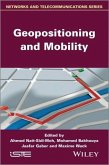Resource Optimization and Security for Cloud Services is a research compilation of the trustworthiness, percentile response time, service availability, and authentication between network users and cloud service providers. In three didactic and detailed sections, the book numerically calculates response times, analyzes QoS metrics in trust-based allocation problems, and evaluates Public Key Cross Realm Authentication in Kerberos and Public Key Utilizing Tickets for Application Servers performances with regard to computational and communication times. Author Kaiqi Xiong's expertise in IT and computer science, along with his extensive research career, qualifies his book as model resource for researchers, engineers, and students in telecommunication fields.
This book includes a study of trustworthiness, percentile response time, service availability, and authentication in the networks between users and cloud service providers, and at service stations or sites that may be owned by different service providers. The first part of the book contains an analysis of percentile response time, which is one of the most important SLA (service level agreements) metrics. Effective and accurate numerical solutions for the calculation of the percentile response time in single-class and multi-class queueing networks are obtained. Then, the numerical solution is incorporated in a resource allocation problem. Specifically, the authors present an approach for the resource optimization that minimizes the total cost of computer resources required while preserving a given percentile of the response time. In the second part, the approach is extended to consider trustworthiness, service availability, and the percentile of response time in Web services. These QoS metrics are clearly defined and their quantitative analysis provided. The authors then take into account these QoS metrics in a trust-based resource allocation problem in which a set of cloud computing resources is used by a service provider to host a typical Web services application for single-class customer services and multipleclass customer services respectively. Finally, in the third part of the book a thorough performance evaluation of two notable public key cryptography-based authentication techniques; Public-Key Cross Realm Authentication in Kerberos (PKCROSS) and Public Key Utilizing Tickets for Application Servers (PKTAPP, a.k.a. KX.509/KCA); is given, in terms of computational and communication times. The authors then demonstrate their performance difference using queuing networks. PKTAPP has been proposed to address the scalability issue of PKCROSS. However, their in-depth analysis of these two techniques shows that PKTAPP does not perform better than PKCROSS in a large-scale system. Thus, they propose a new public key cryptography-based group authentication technique. The performance analysis demonstrates that the new technique can scale better than PKCORSS and PKTAPP.
This book includes a study of trustworthiness, percentile response time, service availability, and authentication in the networks between users and cloud service providers, and at service stations or sites that may be owned by different service providers. The first part of the book contains an analysis of percentile response time, which is one of the most important SLA (service level agreements) metrics. Effective and accurate numerical solutions for the calculation of the percentile response time in single-class and multi-class queueing networks are obtained. Then, the numerical solution is incorporated in a resource allocation problem. Specifically, the authors present an approach for the resource optimization that minimizes the total cost of computer resources required while preserving a given percentile of the response time. In the second part, the approach is extended to consider trustworthiness, service availability, and the percentile of response time in Web services. These QoS metrics are clearly defined and their quantitative analysis provided. The authors then take into account these QoS metrics in a trust-based resource allocation problem in which a set of cloud computing resources is used by a service provider to host a typical Web services application for single-class customer services and multipleclass customer services respectively. Finally, in the third part of the book a thorough performance evaluation of two notable public key cryptography-based authentication techniques; Public-Key Cross Realm Authentication in Kerberos (PKCROSS) and Public Key Utilizing Tickets for Application Servers (PKTAPP, a.k.a. KX.509/KCA); is given, in terms of computational and communication times. The authors then demonstrate their performance difference using queuing networks. PKTAPP has been proposed to address the scalability issue of PKCROSS. However, their in-depth analysis of these two techniques shows that PKTAPP does not perform better than PKCROSS in a large-scale system. Thus, they propose a new public key cryptography-based group authentication technique. The performance analysis demonstrates that the new technique can scale better than PKCORSS and PKTAPP.








